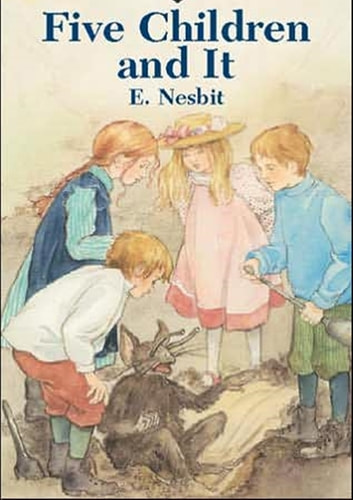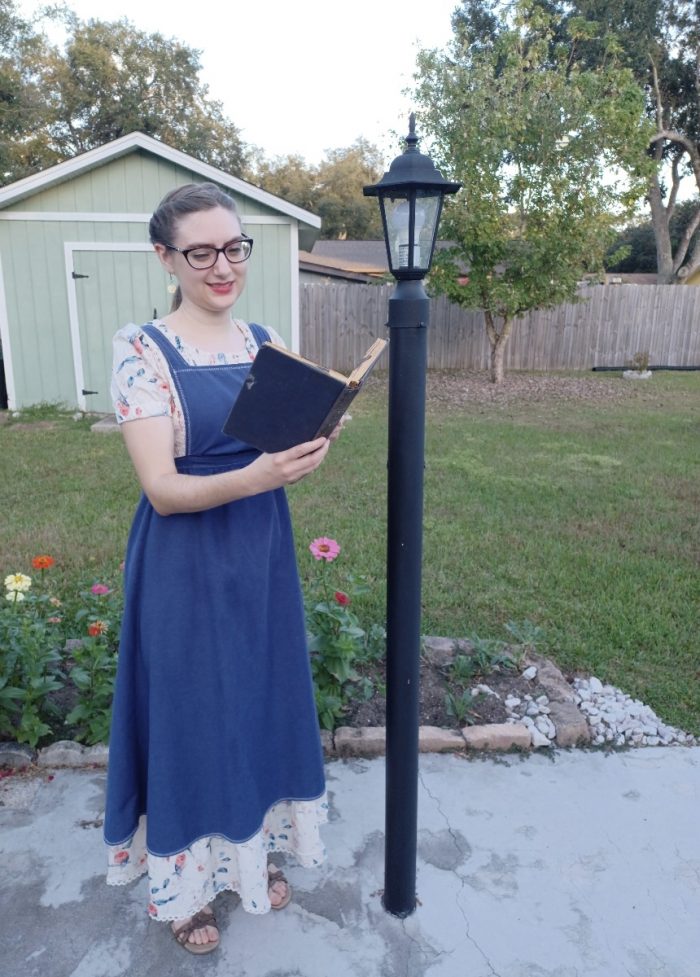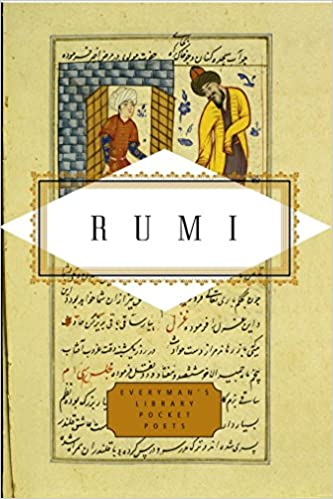“Besides, on general principles it is best that I should not leave the country. Scotland Yard feels lonely without me, and it causes an unhealthy excitement among the criminal classes.”
Sherlock Holmes, “The Disappearance of Lady Frances Carfax”, The greatest Adventures of Sherlock Holmes, circa 1911
Author: Cadie (Page 28 of 46)

I decided to read Five Children and It during October because the little creature on the cover looked like it belonged in a Halloween decoration. I had just finished my Sherlock Holmes volume, and I was looking for something a little easier to read and a lot lighter to hold.
The little creature on the cover is called a Psammead, which is pronounced sammy-ad. It also calls itself a Sand-fairy. It was very fond of telling the children that it was many thousands of years old, alive even when the dinosaurs roamed the earth.
The Psammead, or Sand-fairy, could grant the children one wish each day. Any wish they could think of, he would give them. But the wish would only last ’til sunset. Then the wish would turn to stone or disappear. Of course, when the children heard that, they began to think what they wanted more than anything in the world. And that is where the adventures began.
“The children stood round the hole in a ring, looking at the creature they had found. It was worth looking at. Its eyes were on long horns like a snail’s eyes, and it could move them in and out like telescopes; it had ears like bat’s ears, and its tubby body was shaped like a spider’s and covered with thick soft fur; its legs and arms were furry too, and it had hands and feet like a monkey’s.”
Five Children and It, E. Nesbit, circa 1902
The five children are Robert, Anthea, Jane, Cyril, and the baby, whom they called Lamb. The first wish that the children asked for was to be beautiful as the day. Of course, this was what the two girls wanted; the boys didn’t care for it so much. They quickly learned that being beautiful as the day meant they didn’t look like themselves anymore. They didn’t recognize each other at all. The baby, who had been sleeping when the children discovered the Psammead, didn’t recognize them either, and he began crying and screaming because he didn’t know the others. Then, when the children finally got home with the crying baby, the servants didn’t recognize them and turned them away from the house. The children missed their supper that night because they didn’t return to looking normal until after the sun set. They were quite disappointed with their first wish and decided promptly to be more careful with their next wishes.
Over the next few days, the children wished for gold, for the baby to be wanted, for wings, for a besieged castle, for one of them to be bigger than a mean boy, for the baby to be grown up, for a fight with Indians, and for their mother to find diamonds in her room when she returned home from her trip. You can see that most of these wishes were very silly. By now, you have guessed that the moral of the story must be to be careful what you wish for. But I believe it is even more than that. The underlying lesson in the book is to be careful what you say. Words have consequences. For the children, they found that careless words got them silly wishes that they didn’t truly want. They were glad most of the time to see the sun go down and the wishes to go away.
You may ask, why would the children wish for such silly things? Usually, they didn’t think they were making a wish. They would just say something without thinking, along with the words “I wish”, and before they knew it, the Psammead would grant the wish and burrow in his hole, leaving them alone to deal with the consequences.
For instance, in a moment of frustration with his baby brother, Robert said, “He’s a little nuisance, that’s what he is. It’s too bad. I only wish everybody did want him with all their hearts; we might get some peace in our lives.” This wish was granted by the Psammead, but it took a little while for the children to see the consequences. The baby was subsequently wanted by a rich lady in a carriage, by the lady’s driver and groom, and by a band of Gypsies. At the end of the day, the children realized they didn’t want the baby just because of the wish; they had always truly wanted him, but they had been acting mean toward him.
Even when the children thought hard about what they wanted most, their wishes still had unforeseen consequences. The children wished for wings, and they had a great time flying over the fields and houses and towns. But they didn’t account for how much energy they would need for flying. When they were finally too tired to fly any more, they landed on the roof of a church and stole their lunch from the parson. Not only that, but after they ate the lunch, they took a long nap. A nap that lasted ’til after sunset. When the children awoke, they found that their wings had gone, they were stuck on the roof of the church, and the only way down was through a locked door. They had to shout and yell and make such a racket that the parson, his wife, and a local gamekeeper thought they were robbers or worse. The children had to tell their story, confessing that they had stolen the food. The parson wan’t sure if he could believe the part about the wings and flying, but the children’s apology was so sincere that he forgave them and had the gamekeeper take them home.
Well, I can’t keep telling you the story about the Five Children and It. Then you won’t want to read it for yourself. I will tell you though, that although the children may not have fully learned their lesson about being careful what they say, they did decide that getting wishes granted everyday could be a tiresome thing, especially if the wishes came with strange and horrible consequences. The children also decided to be kind to the Psammead and ask him what he wished for (since he could not grant his own wishes). When he told them, they wished his wish for him. They were not mean children, just a little mischievous and unthinking sometimes.
One last word about Five Children and It: the book was originally published in London in 1902. The language is very sweet, but can be old-fashioned sometimes. And sometimes the words or phrases used are unfamiliar. But don’t let that dissuade you from reading the book. I think you will be disappointed if you don’t at least finish it. The lessons to learn from Five Children and It are important for any stage of life.
“Now,” said the Psammead faintly, “I’m almost worn out. Is there anything else?”
Five Children and It, E. Nesbit, circa 1902
“No; only thank you kindly for all you’ve done for us, and I hope you’ll have a good long sleep, and I hope we shall see you again some day.”
“Is that a wish?” it said in a weak voice.
“Yes, please,” said the two girls together.

My dear readers, thank you for your patience with my lack of updates and posts this October. My family had an unexpected emergency, and though I was still able to read in quiet moments, I had very little time to write on this blog. I am hoping November offers me a little more time for my books and for telling you about them.
What is coming up?
- I finished Five Children and It, so I will be posting a summary of that book soon. It was a short book, an easy read, and I think you will enjoy learning the lesson the five children did.
- I started reading a poetry book by Rumi, a twelfth century Islamic monk. Mary Oliver highly recommends the writings of Rumi, and I was glad to find a lovely copy at Barnes and Noble this month. Even though I have posted a few of his poems, I still want to do a From My Library post because the book itself is as lovely as its contents.
- I still have a few Sherlock Homes words and quotes to share with you, even though I finished Holmes a month ago.
- I am still reading through Herlock Sholmes, though I have slowed down this month since I finished Sherlock Holmes. Expect more quotes and adventures with Sholmes and Jotson.
- I finished reading Mary Oliver’s A Poetry Handbook, but then I decided as an amateur poet, I needed to immediately reread the book and begin practicing some of her lessons. I plan to give you all a few of her poetry writing tips. Most importantly, Oliver states that a writer of poetry must be an avid reader of poetry.
Wow, that feels like a lot to accomplish in the next few weeks. It does feel good to list it all out for you and for me so that I have a goal to write toward. I promise, I will do my best to make it a fun and exciting ride. Because reading is amazing!
don't be bitter my friend
you'll regret it soon
hold to your togetherness
or surely you'll scatter
don't walk away gloomy
from this garden
you'll end up like an owl
dwelling in old ruins
face the war and
be a warrior like a lion
or you'll end up like a pet
tucked away in a stable
once you conquer
your selfish self
all your darkness
will change to light
("Don't be Bitter my Friend" translated by Nader Khalili, Rumi, printed 2006)
This being human is a guest house.
Every morning a new arrival.
A joy, a depression, a meanness,
some momentary awareness comes
as an unexpected visitor.
Welcome and entertain them all!
Even if they're a crowd of sorrows,
who violently sweep your house
empty of its furniture,
still, treat each guest honorably.
He may be clearing you out
for some new delight.
The dark thought, the shame, the malice,
meet them at the door laughing,
and invite them in.
Be grateful for whoever comes,
because each has been sent
as a guide from beyond.
("The Guest House" translated by Coleman Barks, Rumi, printed 2006)

One of the things that stuck out to me when I read Mary Oliver’s Poetry Handbook was that a poet must read poetry avidly. I took Oliver’s advice and bought several poetry books recently.
One of Oliver’s favorite poets was the medieval Rumi, an Islamic mystic and founder of the Mevlevi Oder (the dancing dervishes). I have enjoyed the poems I’ve read thus far, though some I had to read a few times to gather the full meaning. I’m looking forward to sharing the poems I enjoyed the most.
Five Children and It, by E. Nesbit, was first printed in 1905. It is a short read, just over three hundred pages. My copy is a little paperback that my mother gave me several years ago.

Do you see that curious creature on the cover of the book? That is a Psammead (pronounced Sammy-add). It is furry, with a spider-like body and eyes like snails’ that can extend and retract. And its whiskers are extremely sensitive! A Psammead (according to itself) is a Sand-Fairy. It lives in the sand, and it can grant wishes. It has been alive since the time of Megatheriums and Pterodactyls. When the five children in the story find the Psammead, they begin to tell him their wishes. He makes the wishes come true, but they only last ’til sunset. Then everything returns to normal again.
What would you wish for if you knew your wish would come true? Be careful how you answer that. It may not be as good as you expect. And that is the lesson this little book teaches.
I have heard this word before and thought I knew what it meant. But when Sherlock Holmes used it to describe talents Dr Watson did not possess, I decided I should look it up just to be sure. It’s a really neat word, and it rolls off the tongue in a unique way, doesn’t it?
Dissimulate – to disguise or conceal under a false appearance; to conceal one’s true motives, thoughts, etc, by some pretense
Usage: “You won’t be offended, Watson? You will realize that among your many talents dissimulation finds no place…”
If I give you any more of the sentence, I’ll give away the conclusion of “The Dying Detective”, one of The Greatest Adventures of Sherlock Holmes. I’d rather leave you with this cliffhanger, so you will want to read it for yourself. I must say, I was not expecting the story to end as it did.
I came across this great word in “The Dying Detective”, one of The Greatest Adventures of Sherlock Holmes. The context made the meaning of the word very clear, but I still wanted to share it with you. It’s so long and sounds so important.
Perambulate – to walk through, about, or over; traverse; to walk or travel about; stroll
Usage: “Then, unable to settle down to reading, I walked slowly round the room, examining the pictures of celebrated criminals with which every wall was adorned. Finally, in my aimless perambulation, I came to the mantlepiece.”
(My first thought when I read this word was that it reminded me of a scene from Pride and Prejudice when Elizabeth walks round the room with one of the Bingley sisters.)
